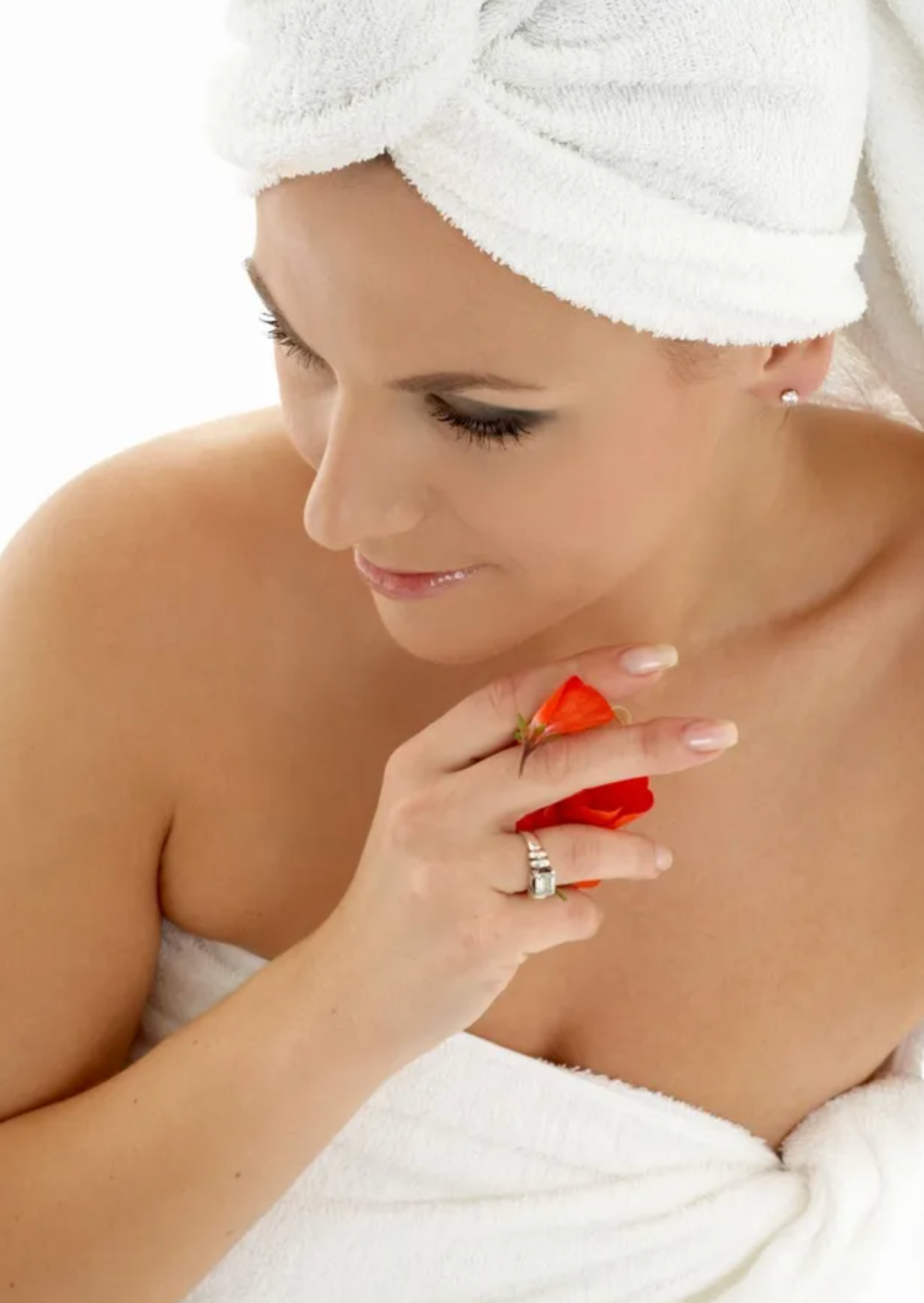
9 Skin-Care Resolutions Dermatologists Want You to Make in 2022
Another insightful article I wanted to share with you published in everyday health.
9 Skin-Care Resolutions Dermatologists Want You to Make in 2022
For healthier, gorgeous skin, abide by these dos and don'ts in the new year.

The new year is the perfect time to check in with your skin-care routine and reassess how your habits may be helping (or harming) your skin.
That said, resolutions are easy to make on January 1, and more difficult to sustain throughout the year. It’s hard to change behavior, especially when it comes to our health, according to findings from a study published in July 2016 in Public Health. Every year, Harvard Health Publishing and other outlets release articles such as “Seven Steps for Making Your New Year’s Resolutions Stick” — because it’s difficult.
Harvard and others recommend breaking your goals into small steps that you can easily tackle. This will allow you to get some wins and feel the progress of your resolution. Additionally, when you hit these small milestones, you should celebrate with something tangible, like a medal, a gift, or some other form of victory lap. And don't punish yourself if you make a few mistakes, says the American Psychological Association: Health changes are incremental, and progress is the victory. Don’t beat yourself up over missteps, because they’re normal.
Long-term change is not easy, but consistency is key — especially with skin care, says Heather Richmond, MD, a board-certified dermatologist with the Dermatology and Laser Surgery Center in Houston. Regular use of high quality skin care will make a huge difference over the long term, she says, but don’t expect results overnight, particularly when it comes to reducing signs of aging. Take retinoids, for example: They're known to reduce fine lines and wrinkles, according to Harvard Medical School, but it can take up to six months of regular use before you’ll see improvements. So any resolution you make now, plan to stick with for all of 2022 for the best results.
To that end, here are some skin-care resolutions that five board-certified dermatologists want you to commit to in 2022.
1. Do Apply Sunscreen Every Day, Every Season
Sunscreen may seem basic, but it’s your most effective skin-care tool. Every dermatologist quoted in this article says committing to daily sun protection is the top resolution they want to see people make.
“When people ask what’s the number one anti-aging cream, it’s sunscreen,” says Cheryl Burgess, MD, the founder and president of the Center for Dermatology and Dermatologic Surgery in Washington, DC.
“It’s been shown that consistent use of sunscreen has the greatest impact in preventing accelerated aging and skin cancers,” says Mamina Turegano, MD, a board-certified dermatologist with Sanova Dermatology in Old Metairie, Louisiana. “I would love for everyone to make a commitment to wearing sunscreen daily as part of their morning routine.”
She recommends wearing a broad-spectrum sunscreen with SPF 30 or higher, and searching for a moisturizer with SPF, too. Broad spectrum means the sunscreen will guard against the harmful effects of UVA rays, which contribute to premature skin aging, and UVB rays, which cause sunburn, per the Skin Cancer Foundation.
If you’ve made it this far and believe you’re exempt because you aren’t outside in the winter months, think again — studies show even blue light generated from our computers and electronic devices has a negative impact on our skin. For example, one small study found that blue light exposure was linked with the production of free radicals, which are associated with premature skin aging.
Not to mention that, as the Skin Cancer Foundation notes, UVA rays can even harm your skin through windows, as when you’re in a car or working indoors with natural light.
“Sunscreen is now 24/7,” says Dr. Burgess.
2. Don’t Sleep in Your Makeup
Sleeping with makeup on can cause a host of skin issues, says Burgess, from clogged pores and breakouts to extreme lip dryness, and you risk severe damage to your eyes. “That’s a bad habit a lot of people have,” says Burgess.
Luckily, this resolution is simple: Wash your face before your head hits the pillow. If you’re wearing oil-based concealer, you’ll need a solvent-based makeup removal — Burgess recommends foaming cleansers “which can emulsify most foundations and lipstick.” Be sure to use a gentle cleanser around the eyes however, as they are more sensitive.
3. Do Winter-Proof Your Skin
“Winter is perhaps the most challenging season for your skin,” says Joshua Zeichner, MD, an associate professor of dermatology and the director of cosmetic and clinical research in dermatology at Mount Sinai Hospital in New York City. He recommends that people resolve to use additional skin-care products in the winter as cold weather, low humidity, and wind take a toll on the skin’s outer layer.
Look for products that contain moisturizing humectants, like glycerin and ammonium lactate, because these ingredients can actually pull moisture to your skin, Burgess says. She recommends AmLactin ($15.99, Amazon.com) as one drugstore option that won’t break the bank. Or you can look for generic ammonium lactate, which usually costs less than $20 per bottle.
You may also opt for a cream or an ointment, which tend to come in tubes or tubs, rather than lotions, as the American Academy of Dermatology (AAD) recommends.
Burgess recommends a HydraFacial, which can help restore moisture into your skin during winter months.
4. Don’t Use Indoor Tanning Beds
Even though research has shown that indoor tanning significantly increases the risk of melanoma, the AAD estimates that about 7.8 million American adults still engaged in tanning bed use as recently as 2015. Those numbers are declining from their peak, but the United States has not moved to ban tanning beds as Brazil and Australia have, notes the Skin Cancer Foundation.
Dr. Richmond and Dr. Turegano both say indoor tanning is a huge no-no, and Turegano hopes to see tanning beds made illegal in 2022.
5. Do Throw Out Expired or Unused Products
Many people use the new year as a time to declutter their homes — and if your skin-care shelf is out of control, it might be time to cut down.
Turegano can sympathize: “I like to try as many products as I can to see if they are worth recommending, but my bathroom closet has turned into a junkyard with numerous half-filled containers of skin care — many of which are probably expired. It makes skin care seem overwhelming.”
Her personal skin-care resolution for 2022 is to streamline and organize her skin-care products, and she plans to use the KonMari method to edit and categorize her items.
Not sure where to start? Check the expiration dates on all your skin-care products, and commit to tossing anything that’s past its use-by date. Also ditch anything that is irritating to your skin. Then try to streamline further, says Turegano. “If you have two hyaluronic acid products, you probably don’t need both of them. In terms of deciding what to ditch, if you have the same type of product, look for one that might carry a higher percentage of the active ingredient.”
6. Don’t Pick Your Skin When You’re Stressed
Skin picking can cause infection and scarring, and it’s one habit that Turegano wants to see people break in the new year. While she notes that many people pick their skin for stress relief, Turegano suggests people resolve to find other stress-relieving alternatives to skin picking in 2022, such as popping bubble wrap, aerobic exercise, and getting facials — which are recommended by the TLC Foundation for Body-Focused Repetitive Behaviors.
That said, in some cases, skin picking is a clinical impulse control disorder, according to the International OCD Foundation. They note that up to 1 in 20 people live with this condition — and according to a survey published in March 2021 by the Journal of the American Academy of Dermatology, skin picking increased among this group during the COVID-19 pandemic. If this is the case for you, guidance from a mental health practitioner may be helpful. Cognitive behavioral therapy, acceptance and commitment therapy, and selective serotonin uptake inhibitors (SSRIs) may help treat skin-picking disorders, per the International OCD Foundation.
7. Do Keep Your Routine Simple and Consistent
“I’d like to see simpler skin-care routines in 2022 and have people ditch their multistep regimens,” says Dr. Zeichner. “More is not better and can just lead to irritation. Overscrubbing, overexfoliating, and over-applying products is not necessarily any better than sticking to a simple, effective skin-care routine.”
Turegano says a good rule of thumb is to stick to three simple products that will make a difference: a sunscreen, a cleanser, and a moisturizer.
8. Don’t Smoke
According to the Centers for Disease Control and Prevention (CDC), almost 40 million people in the United States smoke cigarettes. Plus, with the rise of recreational cannabis, the category “smokers” is expanding: In a 2021 Gallup poll, 12 percent of adults say they currently smoke cannabis, the highest number yet.
Whether you're lighting up a tobacco cigarette or a cannabis joint, Burgess notes that smoking does affect your skin, making it appear dry, dull, or ruddy. She suggests avoiding smoke any way you can, which for cannabis users may mean switching to edibles rather than giving up THC.
If you’re keen to kick your tobacco smoking habit in 2022, the CDC offers information and resources to help you do so, while the American Lung Association offers a Freedom From Smoking program that includes interactive online features and group clinics.
9. Do Amp Up Your Routine With Retinol and Vitamin C
If you’re happy with your current skin-care routine, you can always resolve to step it up by adding more targeted products. Richmond, Burgess, and Zeichner all agree that skin can benefit from vitamin C serum and sunscreen in the morning and retinol at night. (Per Harvard Health Publishing, retinol is a milder form of topical vitamin A–derived retinoid. Retinol products are available over-the-counter, while retinoids typically require a prescription.)
“Vitamin C is an antioxidant,” says Burgess, “so it’s a product that helps with environmental stress, aging, and oxidizing processes.” She says it’s beneficial to put on under your sunscreen as it does double duty, both protecting from the sun's rays and reducing the appearance of some of your sun spots or pigmentation.
Meanwhile, Richmond says that retinoids have the best evidence for minimizing visible signs of aging, and her personal skin care resolution is to up her retinol dose.
There are several types of over-the-counter retinol products, and studies show all retinoids seem to reduce photoaging, so personal tolerability is the biggest consideration in trying to pick which one is best for you, says Roopal Kundu, MD, an associate professor of dermatology and medical education at Northwestern University Feinberg School of Medicine in Chicago and the founding director of the Northwestern Center for Ethnic Skin.
Dr. Kundu says a retinol routine will vary considerably by geographic location, season, and skin type. To start, Kundu says to apply a product twice a week as part of a bedtime routine — retinoids make you more sun sensitive, she says, so apply at night and at least two to three days apart. Then, every one to two weeks, you can increase by one additional application a week. “The long-term goal is to apply it nightly if tolerated, but some will only be able to use it two to three times a week,” Kundu says.
To put this ramped up routine simply: “Protect your skin and prevent damage in the morning, and repair your skin in the evening,” says Zeichner.
EPILYNX SKINCARE TIP: Yes, go simple and always use SPF!
References and Images:
https://www.everydayhealth.com/skin-beauty/skin-care-resolutions-dermatologists-want-you-to-make-in-2022/


